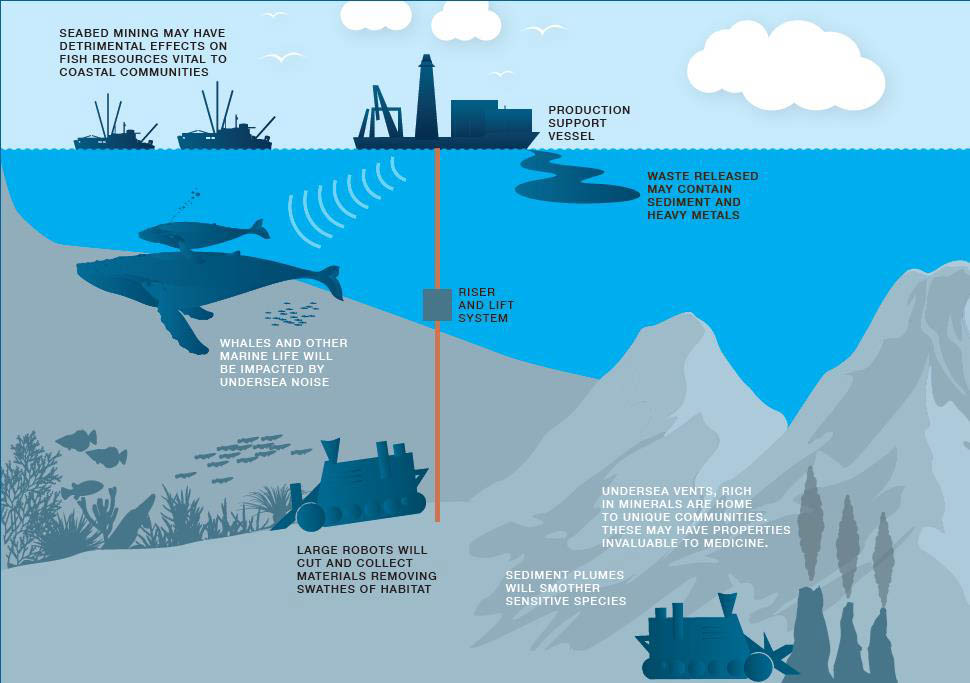‘The more we disrupt it, the more we’re putting ourselves at risk,’
Dr Sylvia Earle
Deep-sea mining might jeopardize the entire ocean and the world, according to renowned oceanographer Sylvia Earle.
Companies want to continue harvesting under the sea since these commodities are becoming tougher to come by on land. Deep-sea mining, on the other hand, would harm ecosystems that have yet to be identified or discovered.
Deep sea mining is a rapidly expanding subfield of experimental seabed mining that involves extracting minerals and deposits from the ocean floor at depths of 200 metres or more. As of 2021, most marine mining operations are restricted to shallow coastal waters, where sand, tin, and diamonds are more readily available.
Polymetallic nodule mining, polymetallic sulphide mining, and the mining of Cobalt-Rich ferromanganese crusts are three types of deep sea mining that have attracted a lot of attention. The bulk of proposed deep sea mining locations are located between 1,400 and 3,700 metres (4,600 to 12,100 feet) below the ocean’s surface, among polymetallic nodules or active and extinct hydrothermal vents.

Silver, gold, copper, manganese, cobalt, and zinc are all found in globular or enormous sulphide deposits formed by the vents. Hydraulic pumps or bucket systems are used to extract ore from the deposits and transport it to the surface for processing.
Deep sea mining, like any mining operations, raises concerns about its possible environmental impact. Environmental advocacy groups like Greenpeace and the Deep Sea Mining Campaign have claimed that seabed mining should not be allowed in most of the world’s seas due to the risk of deep sea ecosystem destruction and pollution from heavy metal-laden plumes. Due to the potential for disastrous environmental consequences, prominent environmental groups and state authorities have also urged for moratoriums or outright bans.
Deep sea mining operations will increase ambient noise in pelagic areas that are generally silent. Deep sea fish and marine mammals have been known to be affected by anthropogenic noise. Changes in behavior, communication difficulties, and temporary and permanent hearing impairment are all possible consequences.
“The ‘new global gold rush’ of deep sea mining shares many features with past resource scrambles, including a general disregard for environmental and social impacts, and the marginalization of indigenous peoples and their rights,” according to a Harvard Environmental Law Review article published in April 2018.
Deep sea mining has the potential to ruin “our last frontier.”






